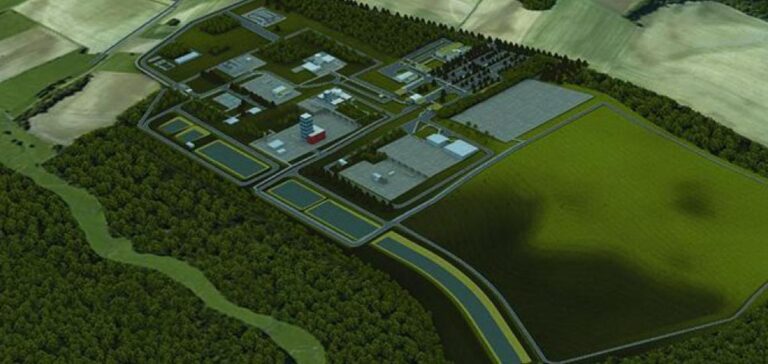The French National Agency for Radioactive Waste Management (Agence nationale pour la gestion des déchets radioactifs, Andra) has revised the cost estimate of the Cigéo project, which involves the underground disposal of the most radioactive nuclear waste in Bure, Meuse. The projected cost now ranges between €26.1bn ($28.1bn) and €37.5bn ($40.4bn), compared to an initial estimate of €25bn ($27bn) set in 2016, Connaissance des Énergies reported with AFP on May 12.
A 150-year projection including construction and closure
This new estimate covers the entire project expenditure over a period of more than 150 years, including construction costs between €7.9bn and €9.6bn ($8.5bn to $10.3bn), maintenance, taxes, insurance, and site closure by around 2170. Andra stated that this revision is based on four distinct scenarios reflecting different fiscal and technical assumptions. The variation can reach €7.4bn ($8bn) depending on the selected configuration.
Acting Director General of Andra, Gaëlle Saquet, told AFP the estimate remains “broadly controlled”, recalling the 2014 estimate of €33.8bn ($36.4bn). The updated figure includes additional costs linked to extended design studies and insights from comparable projects, such as the Grand Paris Express metro.
Optimisation opportunities and scope uncertainties
The public agency has nonetheless identified potential technical savings of up to €3.6bn ($3.9bn), through improvements such as extending the storage cells and using more efficient materials. These adjustments would reduce the number of galleries needed in the selected clay formation.
Andra noted that the estimate does not include waste from the six EPR2 reactors announced in 2022, which have not yet been authorised. However, a “reserve inventory” has been considered, accounting for a possible 5% increase in long-lived waste and 20% in high-level waste, should these reactors be built.
Government decision expected by end of 2025
The reference cost will be set by ministerial decree by the end of 2025, after consulting the Nuclear Safety and Radiation Protection Authority (Autorité de sûreté nucléaire et de radioprotection, ASNR) and the main waste producers. Andra aims to obtain project authorisation between late 2027 and early 2028.
The actual storage of waste in nearly one thousand underground cells is scheduled to begin in 2050, a significant delay from the initial timeline of 2035–2040.






















